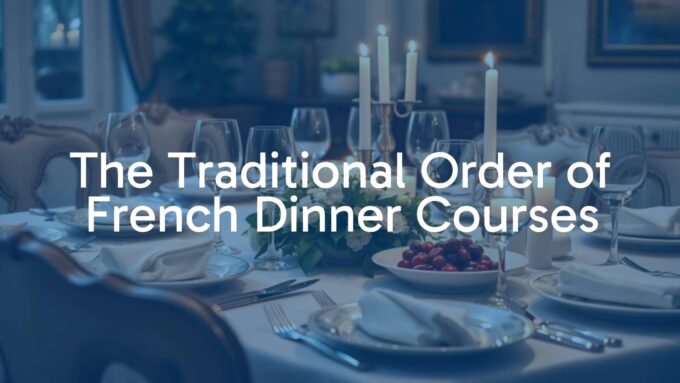Traveling to France, whether you’re enjoying Paris or exploring the peaceful countryside, is a special experience rich with history and character. Some visitors arrive thinking French people are “rude,” but this usually comes from not knowing the local customs. In truth, the French are formal and place a lot of importance on manners and respect. Learning a few basics can help you feel more connected and make your trip much more enjoyable. It’s less about speaking perfect French and more about showing politeness and effort. This guide will help you understand the most important do’s and don’ts so you can relax and enjoy your stay-just like locals savor a fresh croissant.
Why Is French Etiquette Important for Tourists?
Good manners in France are more than old habits-they are just part of life and shape all social moments. For tourists, knowing these customs helps create positive connections and keeps you from accidentally offending anyone. People will see you as a welcome guest and not just another unaware visitor.
How Manners Shape Your Travel Experience
The French take pride in their culture, and being polite is a big part of it. Every interaction, from a simple “hello” to how you act at dinner, follows certain traditions. When tourists try to show respect for these habits, even if they can’t say much in French, locals usually respond with friendliness and support. A cheerful “Bonjour” and a polite smile can turn an ordinary moment into a memorable one. It’s a sign you want to join in and appreciate their way of life.
Common Misunderstandings
Many times when travelers say the French are unfriendly, it’s just a cultural mix-up. For example, not saying “Bonjour” to a shopkeeper or waiter before you ask for help can seem very rude to them. Talking loudly in public, expecting instant service at restaurants, or assuming everyone speaks English can also cause problems. These aren’t big mistakes, but knowing about them ahead of time can help avoid trouble and lead to a smoother, friendlier trip.
Main French Etiquette Rules for Tourists
Learning a few key phrases and gestures will improve all your encounters in France. They’re not optional-these small acts show respect for the country and its people.
How to Say Hello
The most helpful word in France is “Bonjour.” It’s more than a greeting-it opens the door to a friendly exchange. Say it whenever you enter a shop, café, elevator, or speak to a bus driver or waiter. In the evening, use “Bonsoir.” Wait for the other person’s reply before you explain your needs. If you forget, it might leave a bad impression, since starting with “Bonjour” is a key part of politeness in France.

Using Polite Phrases
French people use polite words all the time. Along with “Bonjour,” remember to say “S’il vous plaît” (please), “Merci” (thank you), and “Au revoir” (goodbye). When replying to a thank you, use “Je vous en prie” (the formal, proper way) or “De rien” (more casual). Adding a smile always helps. Using these words shows you respect the other person and value politeness, which is central in France.
Addressing Others Correctly
Always use “Monsieur” for men or “Madame” for women when talking to strangers like shopkeepers or waiters. Instead of just “Bonjour,” say, “Bonjour, Madame” or “Bonjour, Monsieur.” French people expect this each time you talk to staff-even if you already greeted someone else in the store. It might seem over-the-top if you’re used to being more casual, but it’s a basic part of French everyday courtesy.
Social Etiquette: Meeting and Interacting with Locals
Getting along with locals isn’t just about greetings. Knowing how people interact, what topics are safe, and how to use the language can make your experiences much better.
Shaking Hands, Kissing, and Giving People Space
When you meet someone new in France, shaking hands is normal. Among friends or people who know each other, it’s common to do “la bise”-kissing each cheek once or twice. Tourists should not try to start “la bise”-let the local person lead. Unlike in the U.S., hugging is not common with new acquaintances. The French prefer a bit more space, especially when meeting strangers.

Good Conversation Topics
In France, private matters like how much money someone makes aren’t discussed openly. Instead, try talking about French culture, the arts, food, music, philosophy, architecture, or current news. Food is especially popular-commenting on a meal or a local bakery can start a long, fun chat. Reading a little about what’s happening in France can also help you join in on conversations.
When to Use French and How
Don’t assume everyone speaks English. Trying to use French, even a little, is much appreciated. If you need to switch, politely ask, “Vous parlez anglais?” (Do you speak English?) before speaking English. Even if your accent isn’t great, the effort shows respect. Locals are far more likely to help you if you try.
Public Behavior: How to Act in Public Places
French public spaces have their own expectations around noise, personal space, and customer manners. Following these shows you care about how things are done.
How Loud Should You Be?
French people usually speak more quietly than you might expect. Loud voices, shouting, or loud phone conversations (especially on public transport, in restaurants, or in cafés) are considered rude. Use a quiet voice and try to keep excitement lower in public. In things like elevators, saying a simple “Bonjour” is enough-there’s no need for small talk. Respecting the calm atmosphere is important.

Standing in Line and Giving Space
Queuing may seem simple, but it’s a matter of respect in France. Don’t push ahead or stand too close to others. The French may stand closer in line than in some countries, but they still expect you to wait your turn. Random chats in line are rare, and most people prefer their privacy. On the Metro, always take a seat if available and move toward the door before your stop so you don’t block others from leaving.
Shopping: Asking for Help and Paying
In small shops, workers usually wait for you to ask before helping. Make eye contact and politely ask when you need assistance. At markets, always ask before touching produce-often the vendor will pick items for you. When you pay, use your polite words, and remember that many small stores keep short or unusual hours, especially on Sundays. It’s wise to carry some cash, even though cards are commonly accepted.
Eating in France: Restaurants and Table Manners
In France, eating is an important event, not just a way to fill up. Knowing basic table rules will help you enjoy your meal and avoid mistakes.
How to Act in Restaurants and Cafés
Don’t expect to be rushed when eating out in France. Meals are meant to be enjoyed at a slow pace. Waiters give you plenty of time and won’t bring the bill unless you ask. You should signal your waiter quietly-don’t call across the room or snap fingers. Close your menu when you’re ready to order; if it’s open, they may think you’re still deciding. French portions are usually small, and “doggy bags” are rare-leftovers are not expected to be taken home.

Meal Structure: Courses and Timing
Meals often include several courses: a starter (called “entrée” in French), the main dish, maybe cheese, and dessert. At dinner parties, an “apéritif” (pre-meal drinks) usually lasts at least an hour. Start eating only after the host does. Enjoy the meal slowly-don’t rush. If you want to skip extra courses, explain politely. It’s common to have a coffee (often espresso) after a meal, and skipping this can seem odd.
Table Rules: Using Utensils, Eating Bread, and Making Requests
- Offer water or wine to others before serving yourself.
- Bread sits on the tablecloth, not a side plate.
- Use utensils properly, starting from the outside for each course.
- Say kind things about the food-a simple “C’est délicieux!” will do.
- If you’re a guest at someone’s home, bring a small gift (wine, dessert, flowers or chocolates), even if you are told not to bring anything.
- Offer to help your host, either during or after the meal.
Tipping in France
| Situation | Tipping Custom |
|---|---|
| Restaurant or café | Service is usually included. Leaving a few €1 or €2 coins for great service is nice, but not required. |
| Tour guide | Tipping is expected-5€-20€ for group tours, depending on length and service quality. |
| Bar or casual counter service | No tip is needed, but a small coin is welcome for good service. |
How to Dress: French Expectations for Appearance
French fashion is known for being simple, neat, and stylish. Knowing what’s common can help you fit in easily.
What to Wear in France
The main rule is to keep it simple and neat. Dark jeans, plain shirts, and a pair of nice sneakers work well during the day. For evenings, a shirt, skirt, or blazer is good. French women often look “put together” with basic makeup and tidy hair. Looking clean and tidy, even in casual clothes, is what matters most.

What to Avoid Wearing
Try not to wear very bright or flashy clothes, athletic wear (outside the gym), shorts, or baseball caps in cities. These stand out and could make you look like a tourist. The goal is to dress simply and with care instead of following wild trends or dressing too sporty.
Specific Situations and French Manners
There are certain places and occasions where being polite is extra important.
Visiting Someone’s Home or a Social Event
- For dinner invitations, arrive about 15 minutes late (not exactly on time).
- Bring a small gift for your host.
- Wait to be served drinks at the “apéritif”-don’t help yourself.
- Don’t start eating until your host does.
- Offer to help before, during, or after the meal.
- Friendly but thoughtful conversation is best.
How to Treat Service Staff
- Always begin and end with “Bonjour, Madame” or “Bonjour, Monsieur.”
- Phrase your requests nicely: “May I have…the steak, please?” instead of commanding.
- Don’t expect staff to be overly friendly-they may be more formal but still helpful.
On Metro, in Museums, and Public Spaces
- Keep your voice low in public places.
- Sit if seats are available on trains.
- Give others space when exiting.
- Eat only in the right places (not on trains or walking).
- Keep calm and avoid loud or wild behavior.
Common Tourist Mistakes in France-and How to Fix Them
Things That Bother Locals
- Not saying “Bonjour” before asking for help.
- Speaking too loudly in public or on transport.
- Assuming everyone speaks English and not trying any French words.
- Rushing through meals or asking for leftovers.
- Trying to change menu items a lot in restaurants.
- Being overly familiar on first meeting-privacy is valued.
Fixing a Mistake
| Situation | What To Do |
|---|---|
| Forgot to say “Bonjour” | Apologize and add it right away. |
| Spoke too loudly | Lower your voice at once. |
| Did something wrong | Say “Désolé(e)” (sorry) or “Excusez-moi.” Stay polite and try again. |
| Can’t speak French | Ask, “Parlez-vous anglais?”-but always start with “Bonjour.” |
Practical Tips for Using French Etiquette When Visiting
You don’t need to be an expert-just learn, pay attention, and try. Small efforts can make your travels much more pleasant and help you make real connections.
How to Make a Good Impression with Simple French
- Learn and use basic phrases: “Bonjour,” “Bonsoir,” “S’il vous plaît,” “Merci,” and “Au revoir.”
- Always start with “Bonjour, Madame/Monsieur.”
- If switching to English, politely ask, “Parlez-vous anglais?”
- Don’t worry about mistakes-your effort will be appreciated.
Learning More About French Ways
- Read “The Bonjour Effect” for a deeper look at French talk and customs.
- Check out podcasts like “Navigating the French” for extra tips.
- Try a class or cultural tour, like those from French à La Carte, for hands-on practice and language help.
Using these resources can help you not only practice new words but also understand what matters most to French people. With a little effort, you’ll make your visit much more rewarding and enjoyable.













Leave a comment